Bonsai trees are exotic trees that usually have an interesting shape. This is what makes them desirable to have in your home and garden. You can buy them already established or grow them yourself from seed. But how long can you expect a bonsai tree to live? We've done the research to answer this question.
There's no exact amount of time that bonsai trees can live for. Under the right conditions, they can live for hundreds of years. Several factors affect the lifespan of bonsai trees, including:
- Amount of care
- Species of tree
- Sheer luck
Bonsai trees are the small ones that are kept indoors. They can be planted in the ground to grow larger, but then they aren't technically bonsai trees. Regardless, they are the same plant, and therefore the factors that affect their lifespan are the same. In this article, we'll take a closer look at each of those factors.
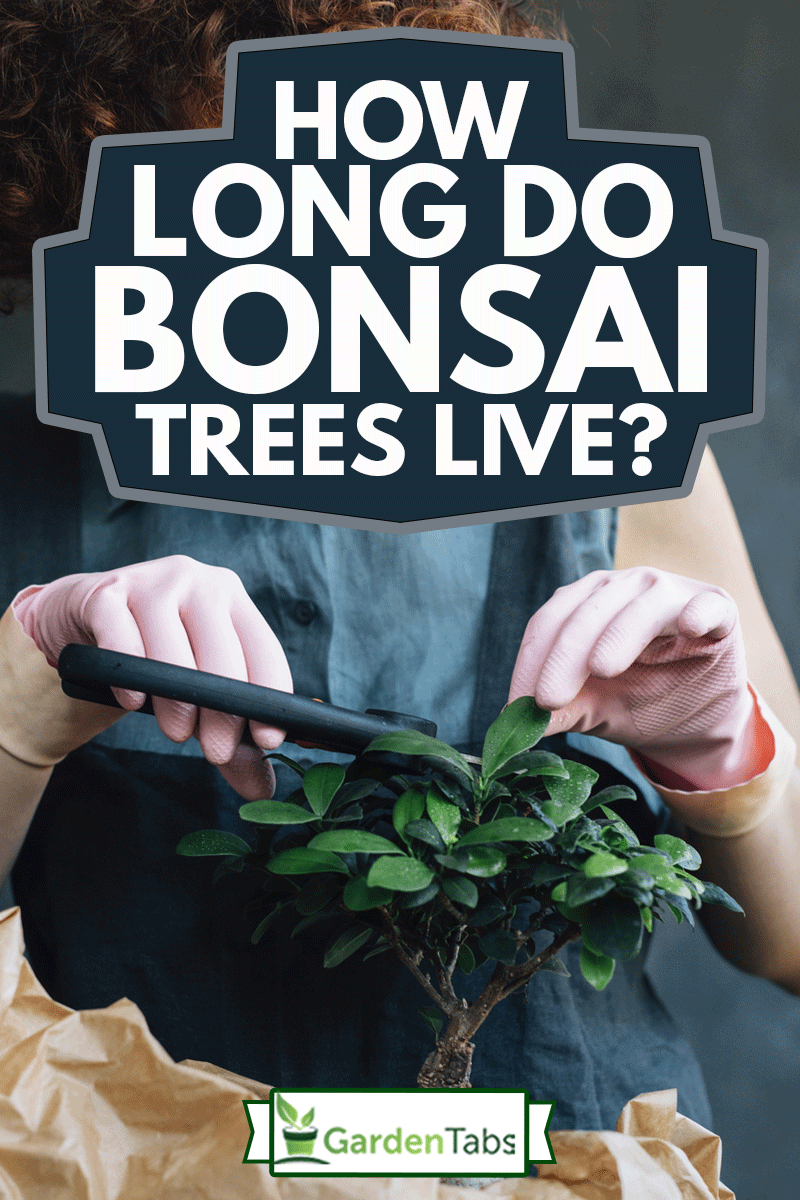
How Long Do Bonsai Trees Take To Grow From Seed?
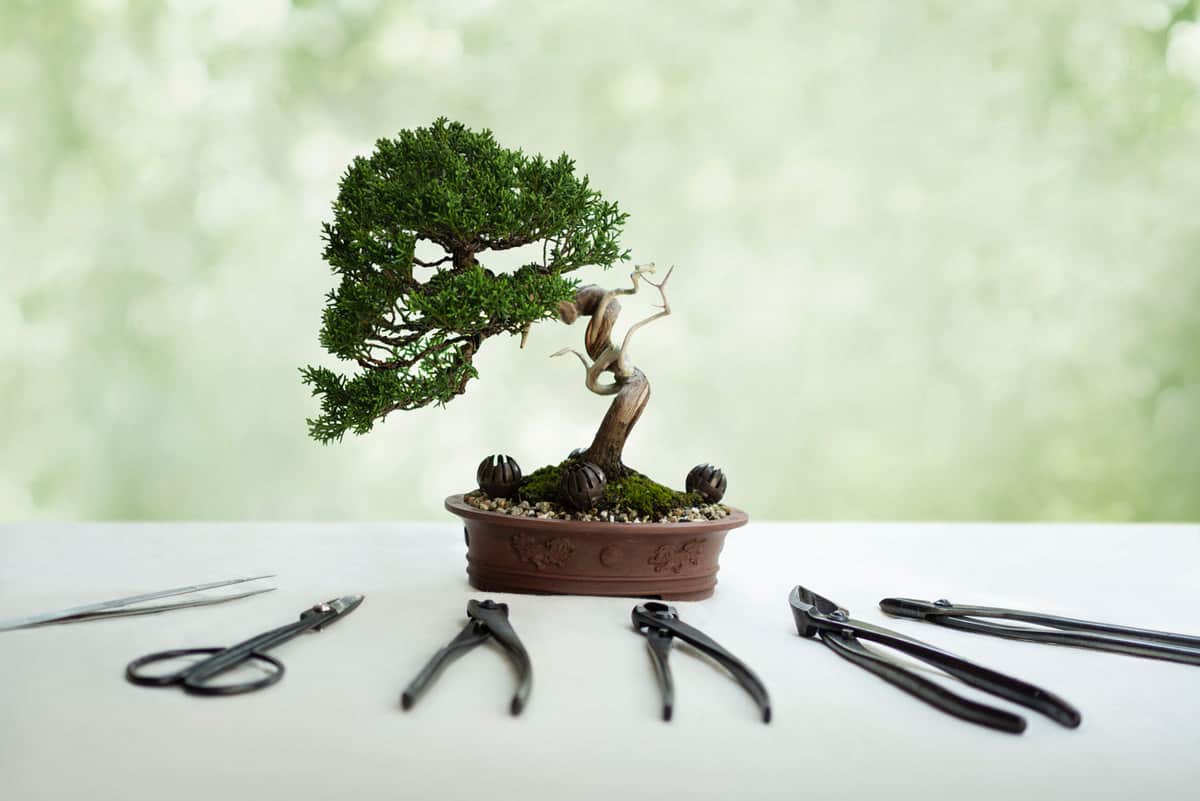
The amount of time it takes your bonsai tree to grow from seed depends on the variety of tree and when and how you planted it. A lot of people who plant bonsai trees can never actually get them to sprout. It takes a lot of meticulous care and, quite honestly, a little bit of luck.
With that being said, if the odds are in your favor, you can expect to see a sprout start to grow about four weeks after planting if you're growing the bonsai indoors. If you're trying to grow it outdoors, the seeds won't germinate until early spring.
If they don't germinate and you're growing your seeds outside, you likely planted them too late. It's also doubtful that a seed will sprout if you plant just one. For best results, plant several seeds to increase the chances that one of them will sprout. Once the seeds do germinate, you likely won't be able to start shaping your tree for at least 3 to 5 years.
What's The Lifespan Of A Bonsai Tree?
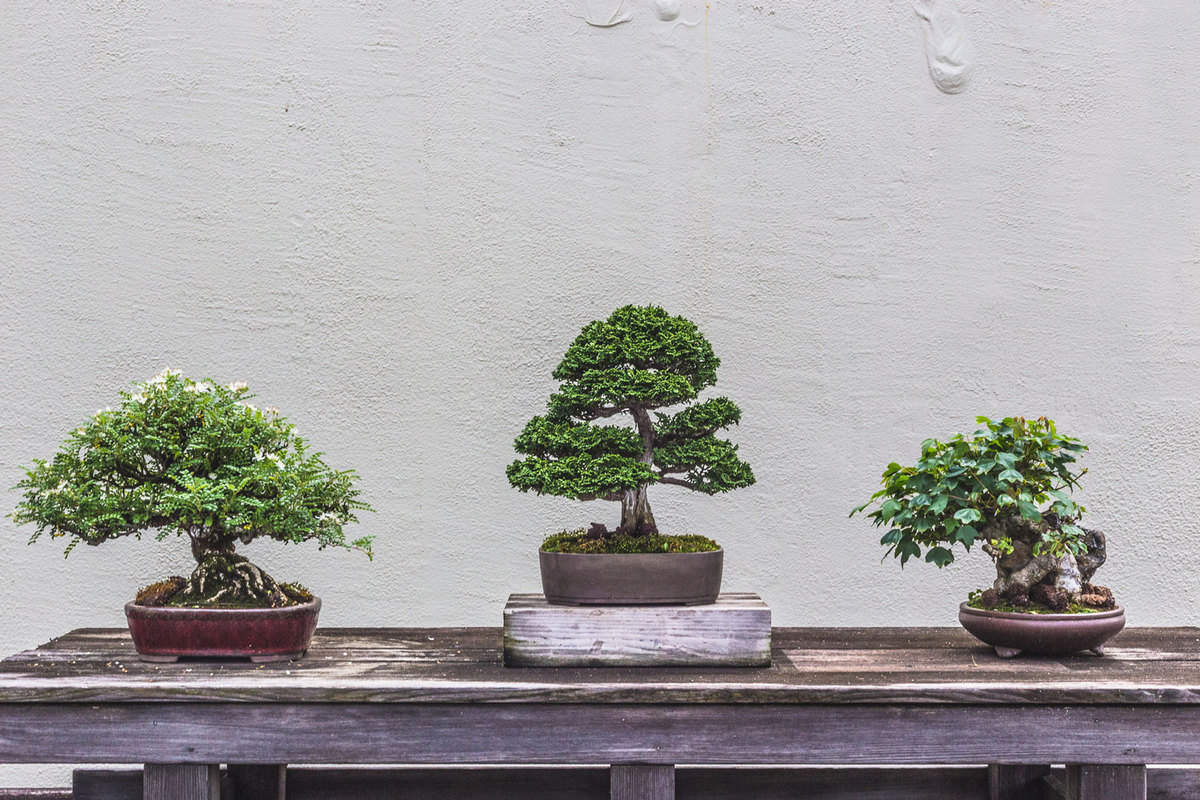
Just because the trees are small doesn't mean they won't live a long time. Bonsai trees can live anywhere from a few months to several hundred years. The most significant factor that determines how long a bonsai tree lives is how well you took care of it.
Bonsai trees are just miniature versions of regular trees. Therefore, they have the chance to live for the same amount of time as other trees. However, when grown inside, they are less susceptible to damage from disease and other natural elements. Bonsai trees are also subjected to more care, which can increase their lifespan.
While the amount of care they receive is the biggest factor for how long a bonsai tree lives, there are other factors. Let's take a look at each of these factors in more detail.
Amount Of Care
Bonsai trees aren't low-maintenance by any means. They are designed to be shaped and meant to be kept small. Doing so means that they require almost constant care to maintain their shape and live a long and healthy life.
Sunlight And Water
Remember that bonsai trees aren't a particular species of tree. Instead, they are a miniature version of a wide variety of trees. Therefore, they require the same amount of sunlight and watering frequency that larger trees of the same type need. Knowing the species of your bonsai tree is the first step in understanding how to care for it.
Once you know the species, you can provide the proper amount of sunlight and water for your tree. You may not have to water your bonsai tree every day, but sticking to a watering schedule can help ensure that your tree stays hydrated. When trees dry out, they'll start to die.
Pests And Diseases
Although bonsai trees are susceptible to as many pests and diseases indoors as outdoors, they can still be affected. If you have other plants in your house, any pests or diseases that they have can affect your bonsai if it is kept nearby. Closely monitor all of your plants for signs of insects or diseases and treat them as soon as possible.
Pets And Kids
If you have pets and kids, they can also affect the health of your bonsai tree. Usually, they don't cause problems on purpose, but it's a good idea to keep the tree away from them to prevent any accidents from happening.
For example, your pets could eat or relieve themselves on your tree. Curious children may want to touch and play with the tree also. These things can affect how long your tree lives if you aren't careful.
Pruning And Repotting
Lastly, it's essential to repot your bonsai tree. Yes, they will stay small if you keep them pruned and shaped, but they will still increase in size, especially in the initial years of their growth. Your bonsai could outgrow its pot which can interfere with future growth and how it receives nutrients. If your tree isn't in the correct size pot, it may not thrive and could eventually die.
See more: Types Of Planters And Planting Pots
Species Of Tree
The next factor that affects the lifespan of your bonsai tree is the species. Some species of trees are easier to care for and live longer than others. Some of the most popular species of bonsai trees include:
- Cedar
- Cherry
- Cypress
- Ficus
- Juniper
- Japanese Maple
- Pine
Again, the largest factor that affects a bonsai tree's lifespan is the amount of care. Some are easier to care for than others and are better for more inexperienced bonsai growers.
Ficus bonsais tend to be the easiest to care for, so they generally live longer than other bonsai species. Cedar and cypress bonsais also have pretty long lifespans. Pine tree bonsais are harder to care for and may not live as long.
You may also like: Do Japanese Maple Trees Lose Their Leaves?
Sheer Luck
Sometimes bonsai trees only live a long time due to luck. Even if you provide the proper care and living conditions, bonsais aren't entirely immune to diseases and pests. There's a chance that your tree could still become infected despite your best efforts.
The chances of your tree surviving can also depend on how it was grown and where you purchased it from. If you tried to grow it from seed, it might not sprout at all. If it was already established, where you got it from could also be a factor depending on how well the tree was taken care of before you getting it.
Are Bonsai Trees Hard To Keep Alive?
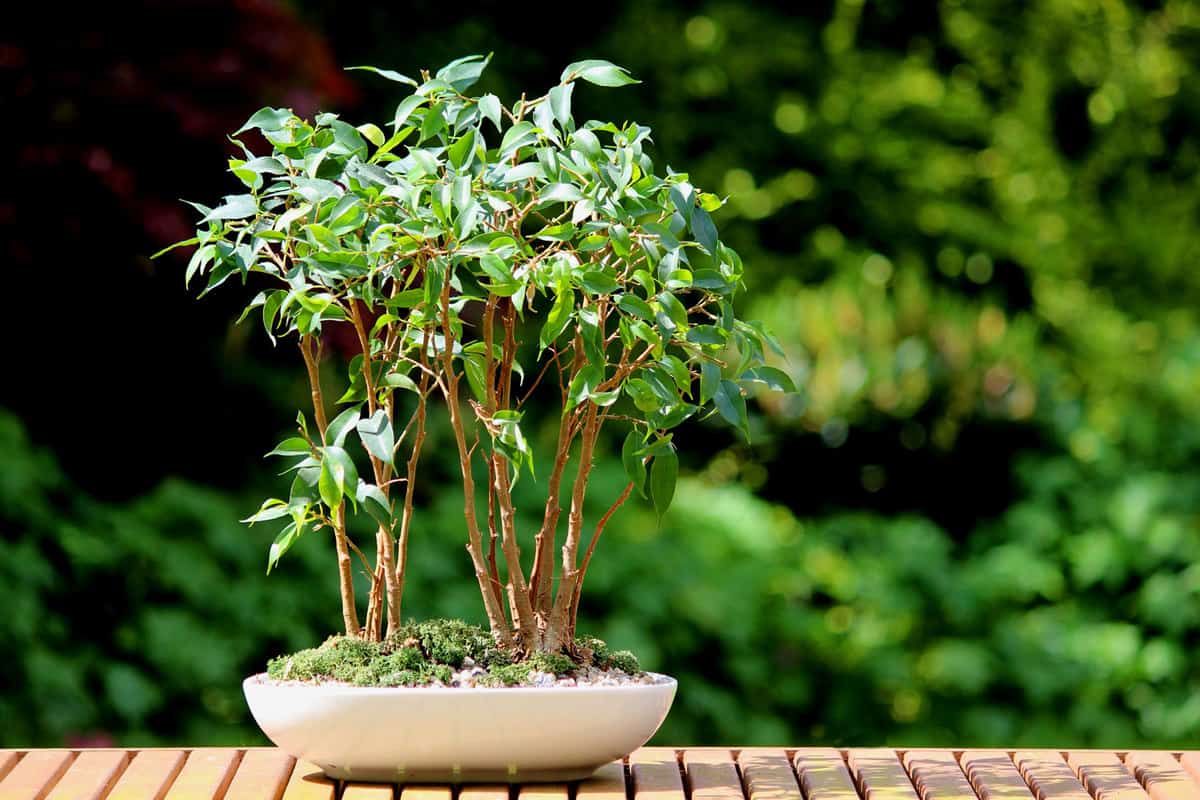
Bonsai trees are not that hard to keep alive if you know what you're doing and follow the proper care recommendations. Before attempting to grow a bonsai tree, make sure that you research different species and find one that you can reasonably take care of.
How Can You Tell The Age Of A Bonsai Tree?
You can determine the age of most trees by cutting them down and counting the number of rings in their trunk. You don't want to do that to a bonsai tree because it would kill the tree that you've worked so hard to take care of.
Luckily, there is another way to tell how old your bonsai tree is without cutting it down. But, you have to know which species of bonsai tree you have to do this. If you know the species, follow these steps.
- Take a measuring tape and run it around your bonsai tree at the height of 1.5 inches above the ground. This is your circumference measurement.
- Divide the circumference measurement by 3.14 (pi). This will give you the tree's diameter measurement.
- Find the growth factor of the species of tree you have by searching online. Just Google the species you have followed by "growth factor," and you'll get a number value. Multiply the diameter times the growth factor to find your tree's age.
As long as you know the tree species, you can also use a tree age calculator such as this one to find the age of your tree.
How Old Is The Oldest Bonsai Tree In The World?
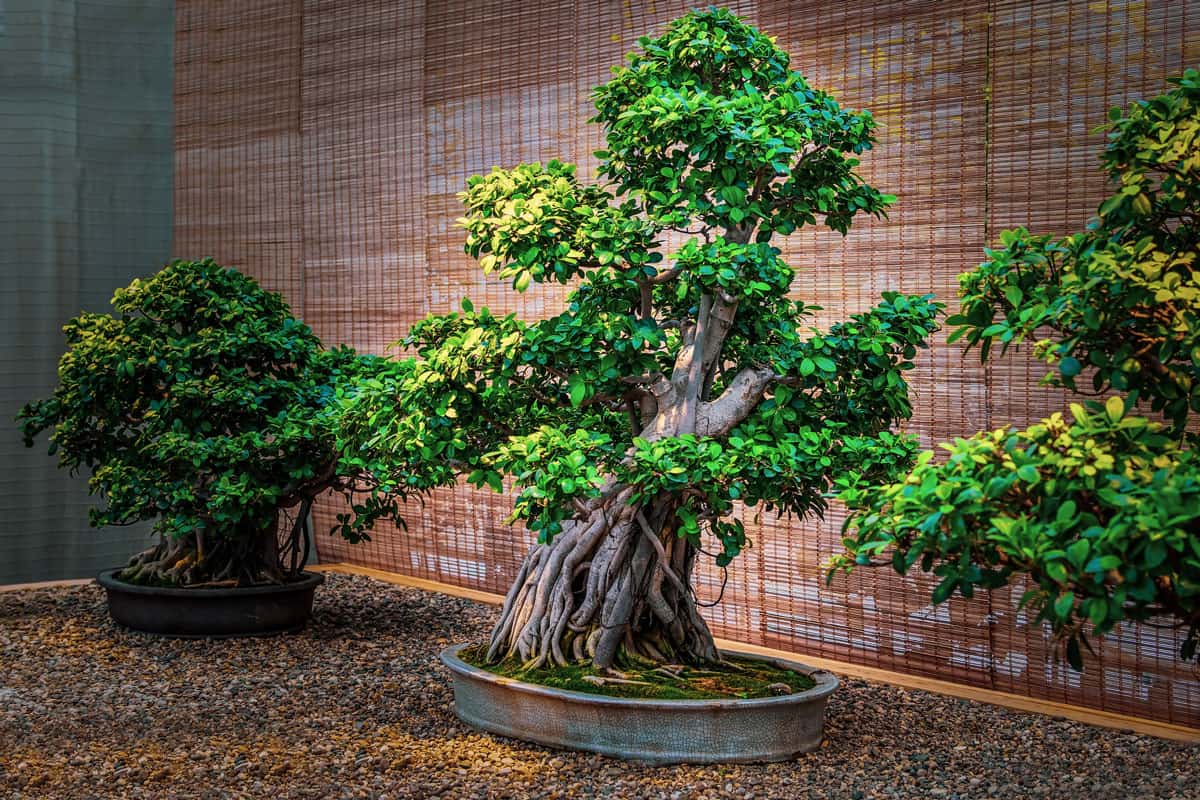
The oldest bonsai tree in the world can be found in the Crespi Bonsai Museum in Milan, Italy. It is a ficus bonsai that is over 1,000 years old and around 10 feet tall. It is also planted in the world's largest bonsai pot.
Another notable bonsai is around 400 years old. It is a Japanese white pine bonsai that was near Hiroshima, Japan, when the atomic bomb was dropped on Hiroshima during World War II. Despite massive devastation all around it, the tree survived and is now housed in the United States National Arboretum.
